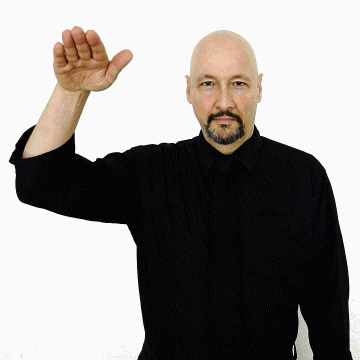asl
1/193
Earn XP
Description and Tags
.
Name | Mastery | Learn | Test | Matching | Spaced | Call with Kai |
|---|
No analytics yet
Send a link to your students to track their progress
194 Terms
Fun
both hands u hand shape. one hand taps the nose then moves down to the other hand
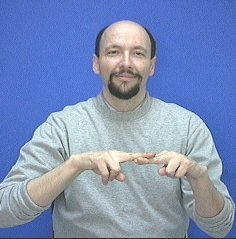
meaning
two handshape against a flat palm. two handshape twist and tap against the palm
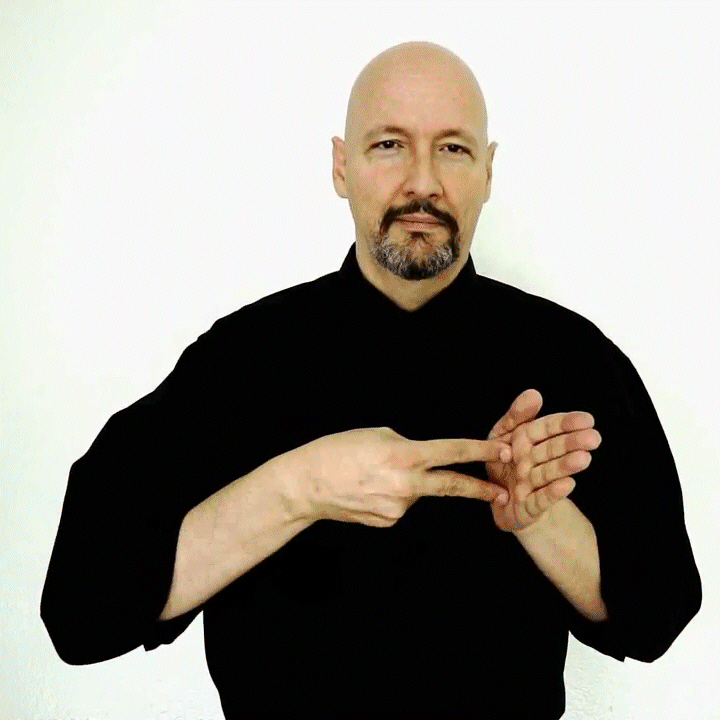
Nice/Clean
placing your left hand in front of you, palm up and moving the flat palm of your right hand across your left hand
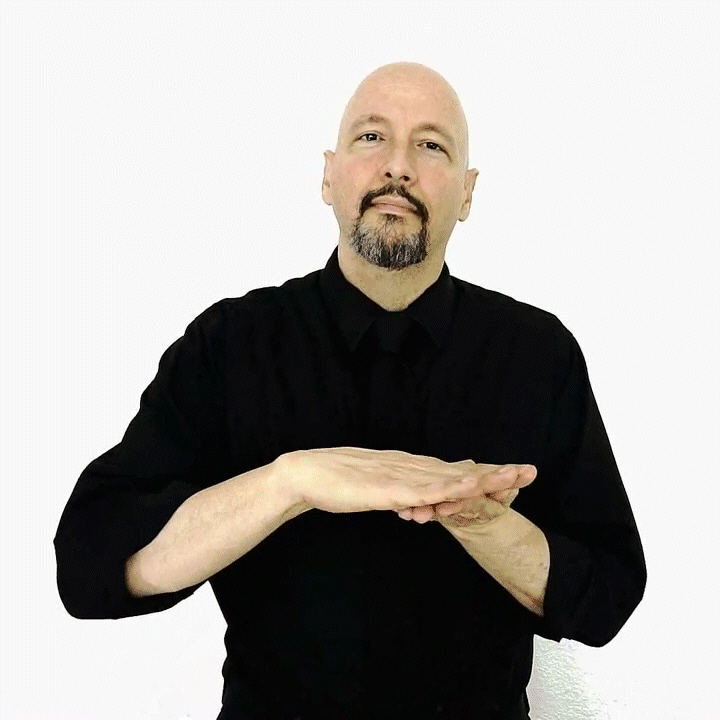
slow/slowly
slide the dominant hand (right hand if you are right handed) up the non-dominant forearm a short distance--starting at the back of the base (left) hand. You only need to go a few inches.
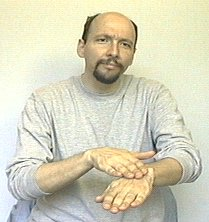
Marriage
clasping both hands comfortably together. Your dominant hand should be on top of your non-dominant hand
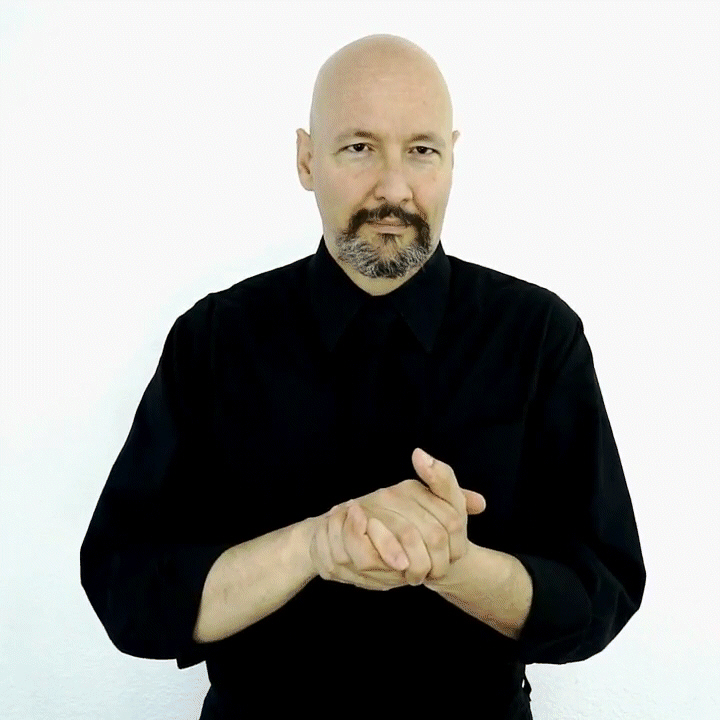
Child
two pats on the top of an imaginary child's head.
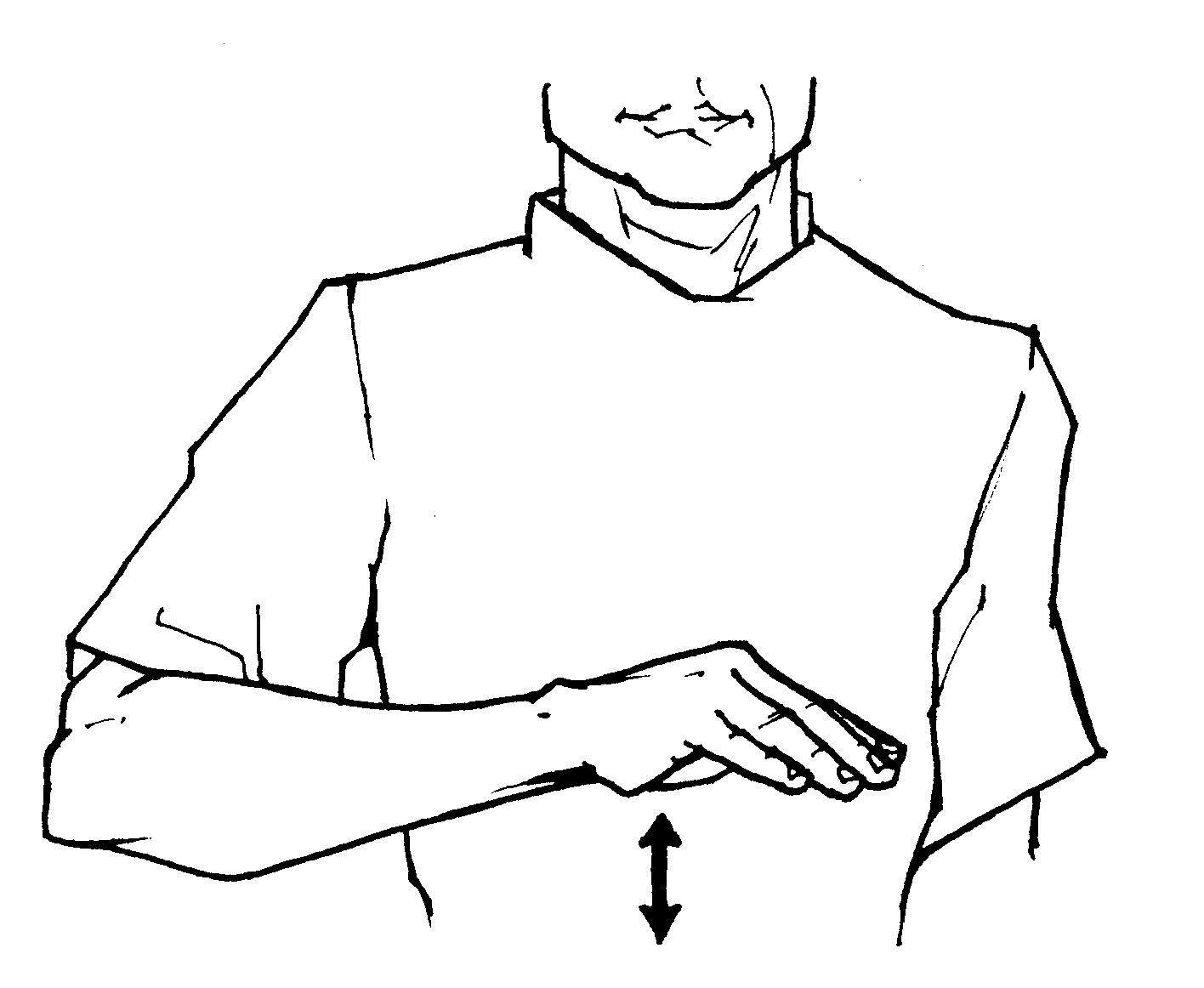
again / do over / repeat
bend your dominant hand at the large knuckles and then move your hand in a bit of an arc and touch the palm of your non-dominant (flat) hand with the fingertips of your (bent) dominant hand.
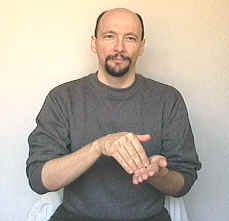
deaf
one handshape. Starting location on the cheek near the ear.
Ending on the cheek near the mouth. Many people do the opposite. They start near the mouth and end near the ear.
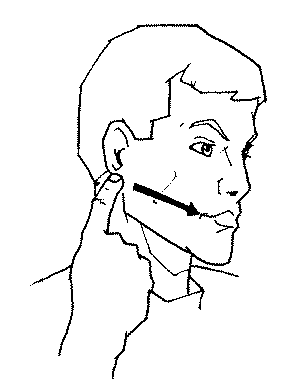
hearing person
The movement is a small rotation. Up, forward, down, and back. Repeat twice. Think of words tumbling forth from the mouth.
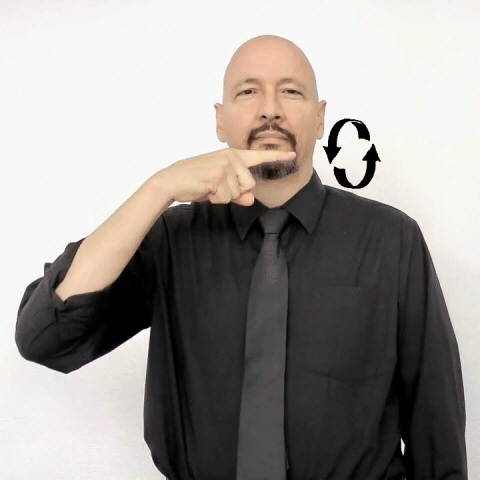
ability to hear
tap your ear twice
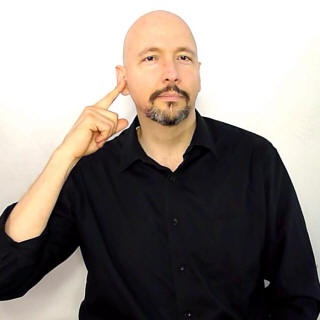
understand
Hold your hand up near your forehead. Your index finger is bent and the tip of the index finger is touching the pad of your thumb (your thumbprint). Then flick your index finger so that it points up. Think of a "light bulb" turning on in your head
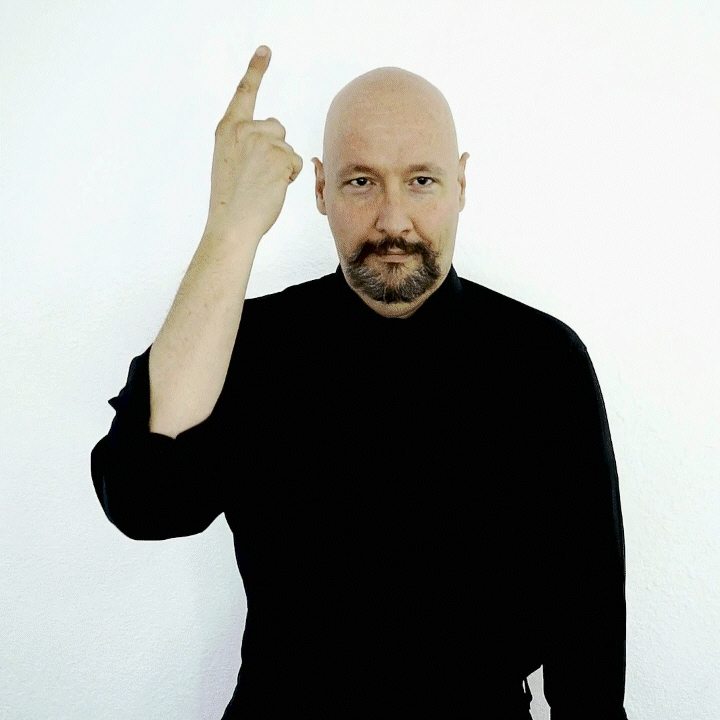
learn
looks like you are trying to grab information from the page of a book and stuff it into your head.
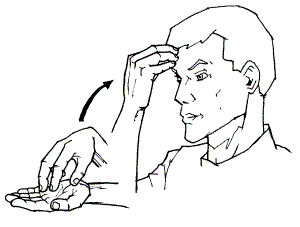
student
learn person
like (enjoy something)
eight handshape. start the sign a bit out from my chest with my middle finger and thumb pointing back toward my chest (but not touching either my chest or each other). Then I move the hand forward while bringing the index and thumb together.
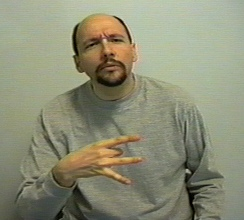
meet
"index finger" handshapes. The two hands "meet" in the middle. can move in the direction of who the signer is talking about. index fingers do not touch
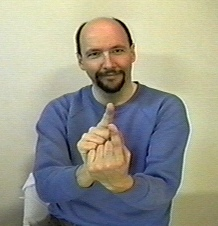
name
Handshape: "H" handshape on both hands. Movement: Tends to be a double movement (but a single movement is also common).

to clean/ clean up/ cleaning
placing your left hand in front of you, palm up and moving the flat palm of your right hand across your left hand. double motion
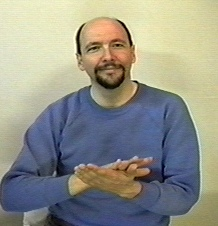
No
can use either a polite double motion or a more firm or definite single motion. three handshape closed
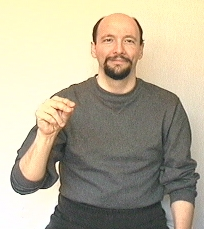
sign (sign/signing/ sign language)
Form both hands into "1" hand shapes. Then draw a couple of large circles in the air with the tip of each index finger. You can either circle the hands backwards or forwards (but pick a direction and stick with it). The hands both move at the same time but one hand is half a circle ahead of the other hand).
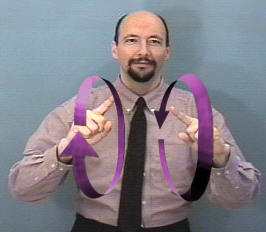
teach
The sign starts near your head and moves out. This sign can use either a double movement or a single movement. The more formal version of the sign is done up near your forehead.
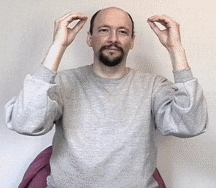
process of teaching
The sign starts near your head and moves out. This sign can use either a double movement or a single movement. The more formal version of the sign is done up near your forehead. double movement
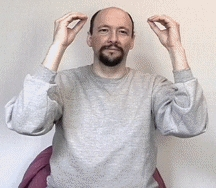
teacher
teach person
thanks you
starting with the fingers of your dominant hand near your lips. Your hand should be a "flat hand." Move your hand forward and a bit down in the direction of the person

what
Handshape: Both right and left hands in a "five" handshape. Fingers and thumb spread, relaxed, (not straight)
Location: Mid-torso, in front of you, a foot or so apart from each other.
Orientation: You palms are facing up.
Movement: Each hand moves horizontally outward and back in a couple of times. The movement is only a couple of inches at most. eyebrows down
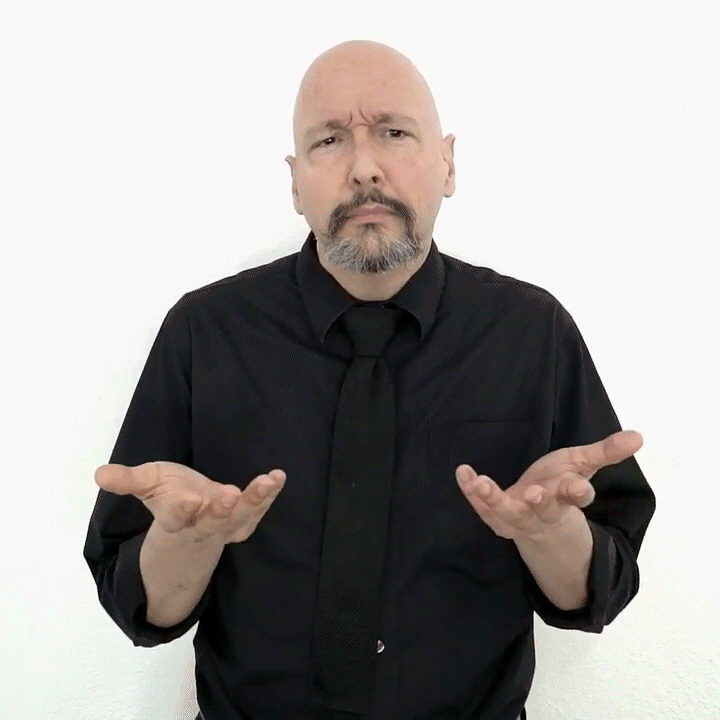
where
INDEX-finger handshape. Hold your hand in front of you and "pivot" the hand side to side a couple of times. The movement is in the wrist and elbow NOT in the finger joint. eyebrows down
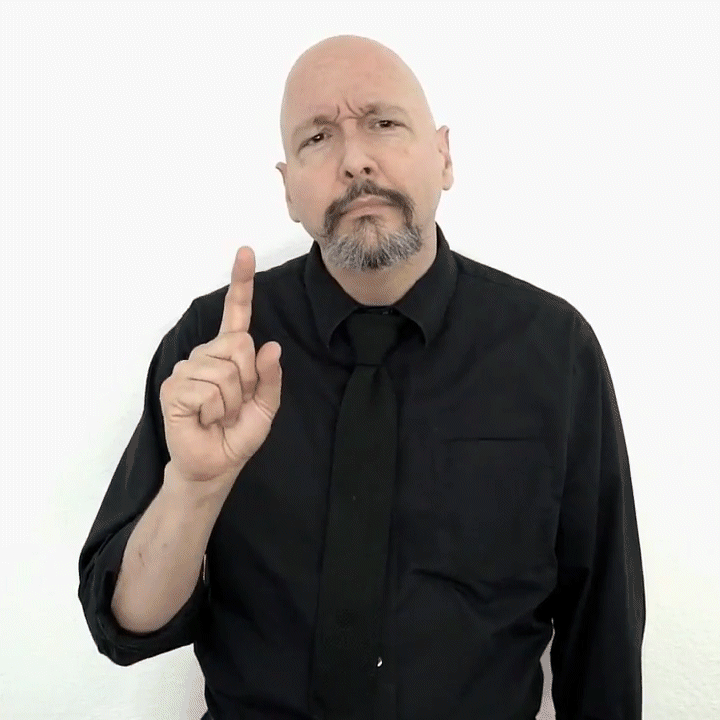
who
place the tip of your thumb on your chin with your index finger extended. Bend your index finger twice. eyebrows down
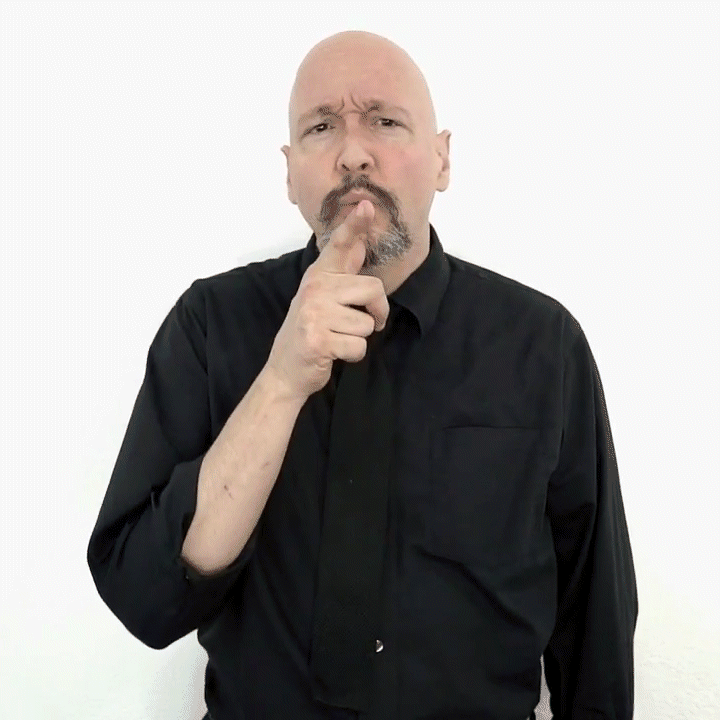
why
touching (or coming near) your forehead with the fingers of your dominant hand then while bringing your hand forward and down , change it to the letter "y," keeping your palm facing you. eyebrows down
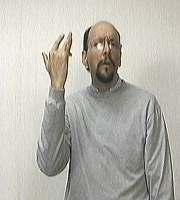
why
The index finger isn't bent. The middle finger and sometimes both the middle finger and the ring finger "wiggle" a couple times. eyebrows down
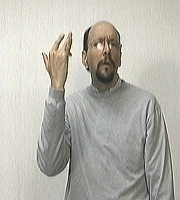
yes
uses an "S" hand moving up and down
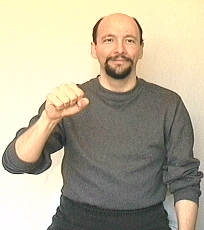
your
Aim your palm at the other person.
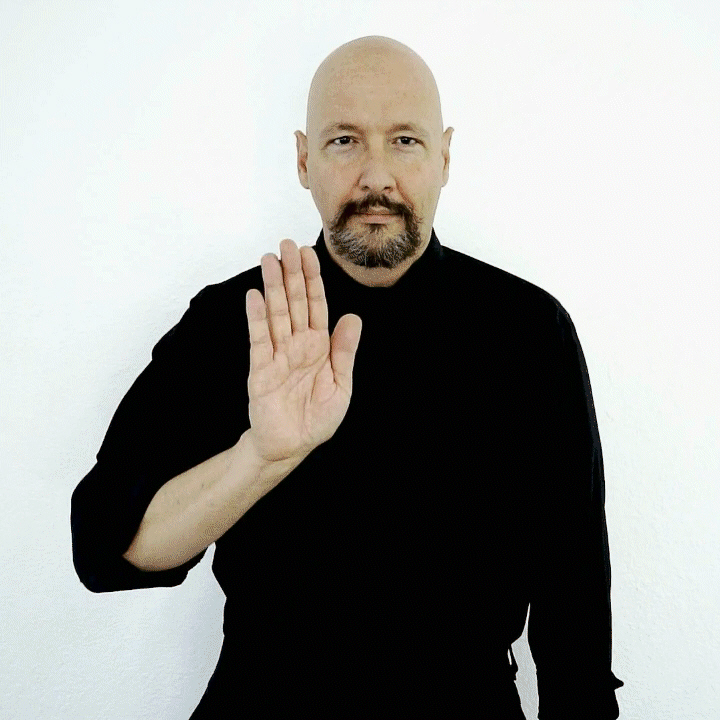
boy
go to forehead and do a squished C handshape and then close it
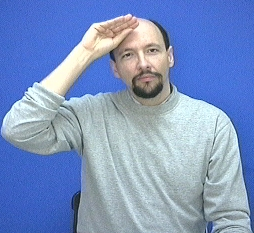
man
father fine
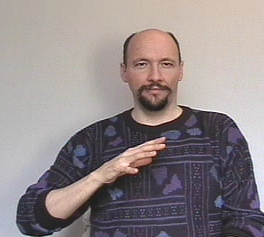
brother
This sign starts with either a modified "L" hand or "G" hand on the dominant hand and an "index finger" on the non-dominant hand. Then the dominant hand moves downward while changing into an "index" finger handshape at the end of the sign.
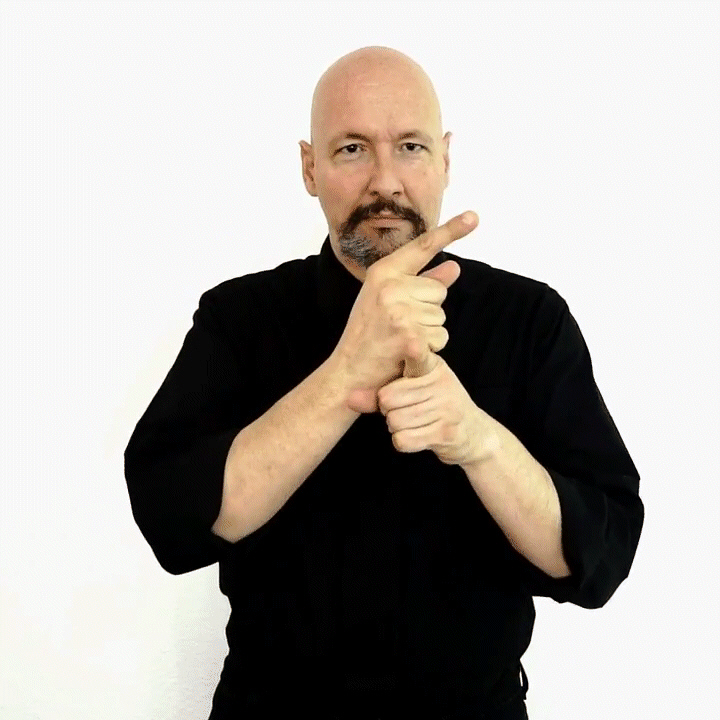
Child
doing two pats in the air. can also be two handed.
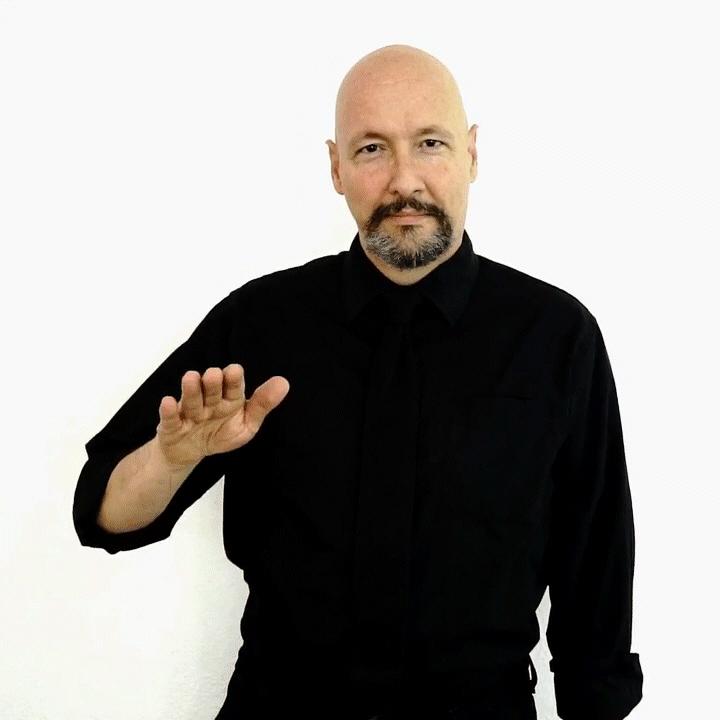
dad
placing the tip of the thumb of your "5-hand" on or near your forehead.
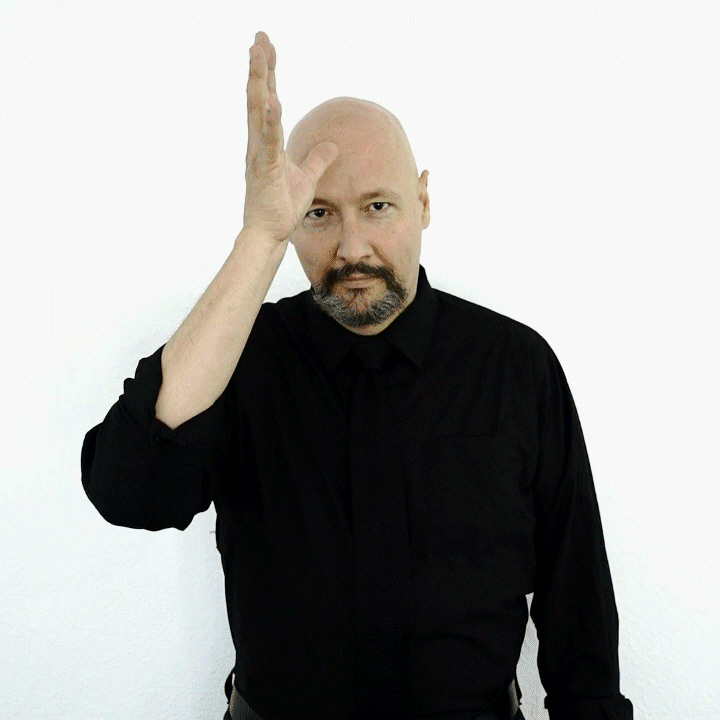
divorce
first forming the letter "d" with both hands. Hold both hands together with the palms facing each other. With a twisting motion, move both hands outward and sideways so both palms face forward.

girl
Place the tip of your thumb on your cheek. Slide the tip of the thumb forward and down along the cheek.
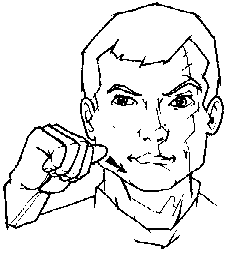
little girl
girl child
grandma
touching your chin with the thumb of your dominant hand, as when signing "mother." The dominant hand should be open. Move your hand forward in two small arches.
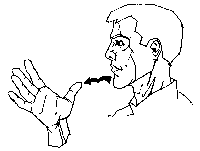
grandpa
touching your forehead with the thumb of your dominant hand, (the same as when signing "father"). The hand should be open. Now, move your hand forward in two small arches.
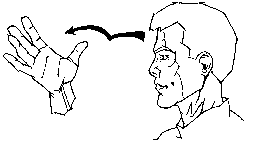
have
Hold "bent" handshapes a few inches out from your upper chest. Move your hands back and touch your chest.
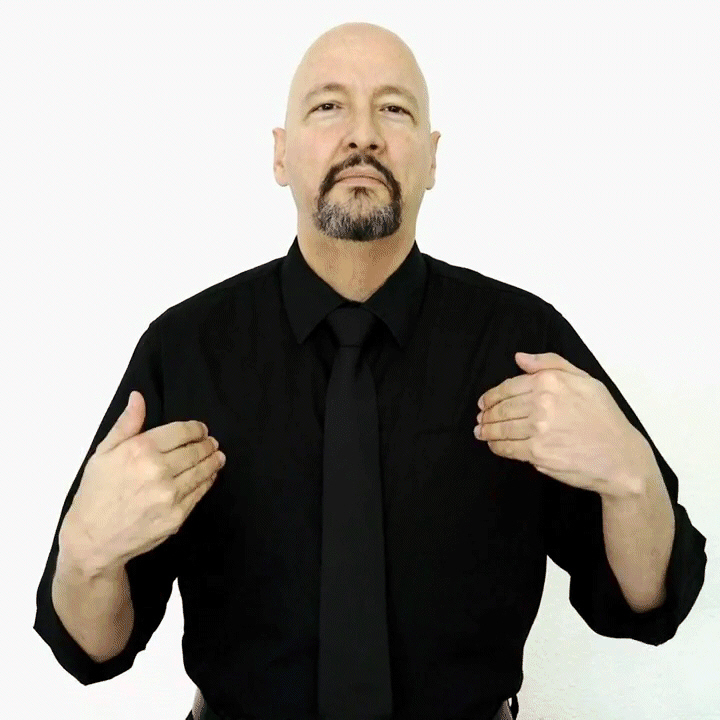
hey
five hand shape waved at the person
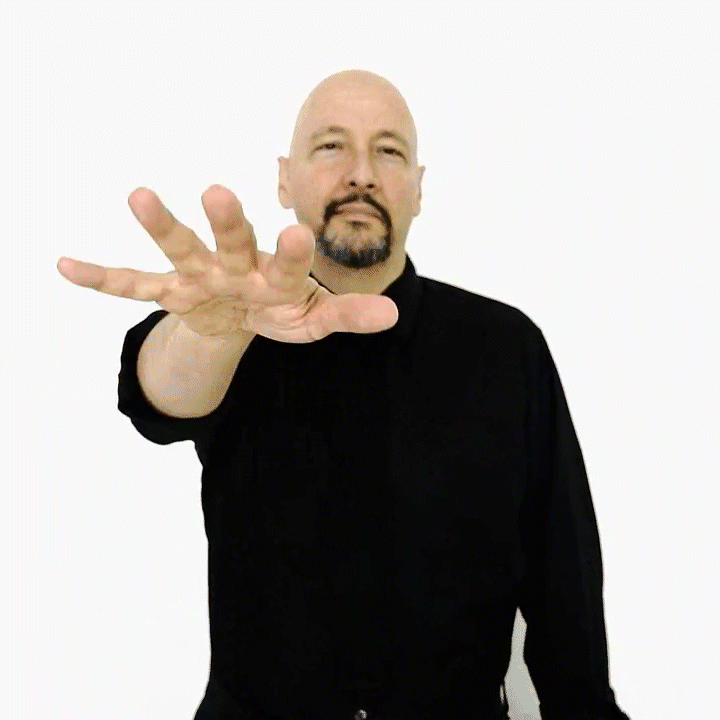
how
Form curved handshapes on both hands, palms down and/or slightly back. Place your hands together with the knuckles touching. (Looks kind of like McDonalds' Golden Arches.) Roll the hands forward until the "arches" are upside down--ending with your hands palm-up in "cupping" handshapes. When asking how something was done or how something happened you should furrow your eyebrows or roll one hand forward
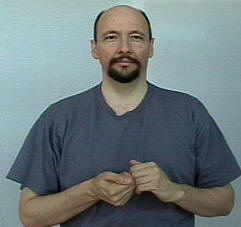
how many
eye-brows down. hands up at a S handshape then open
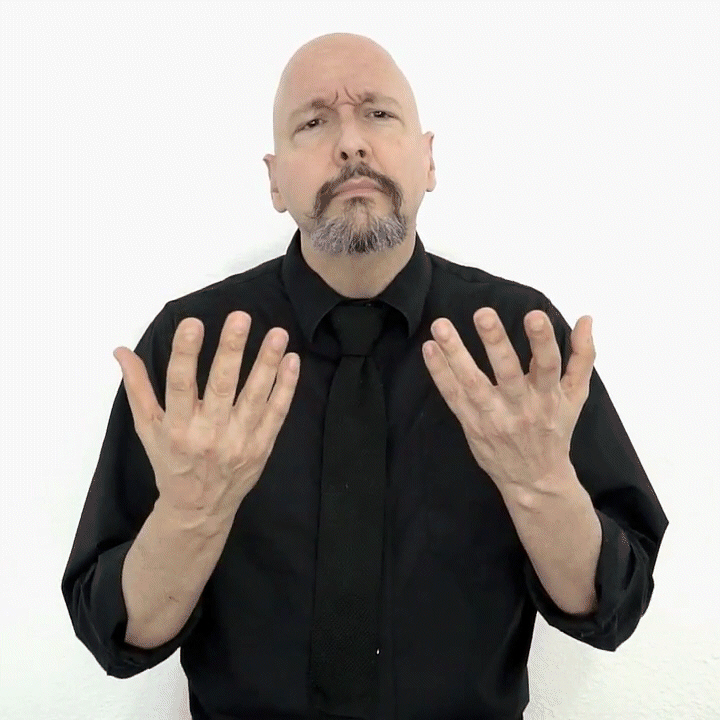
address (where you live)
sideways A with both hands move up
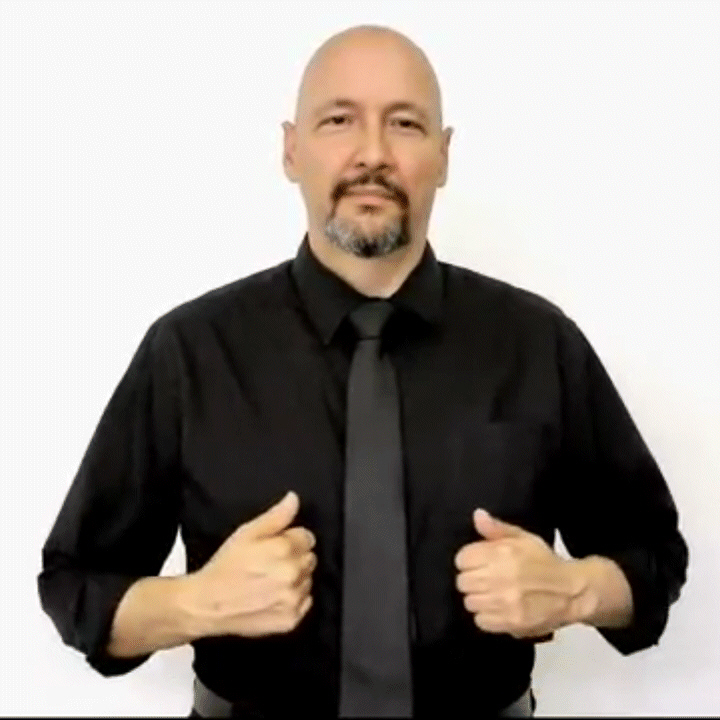
marriage
clasping both hands comfortably together. Your dominant hand should be on top of your non-dominant hand.
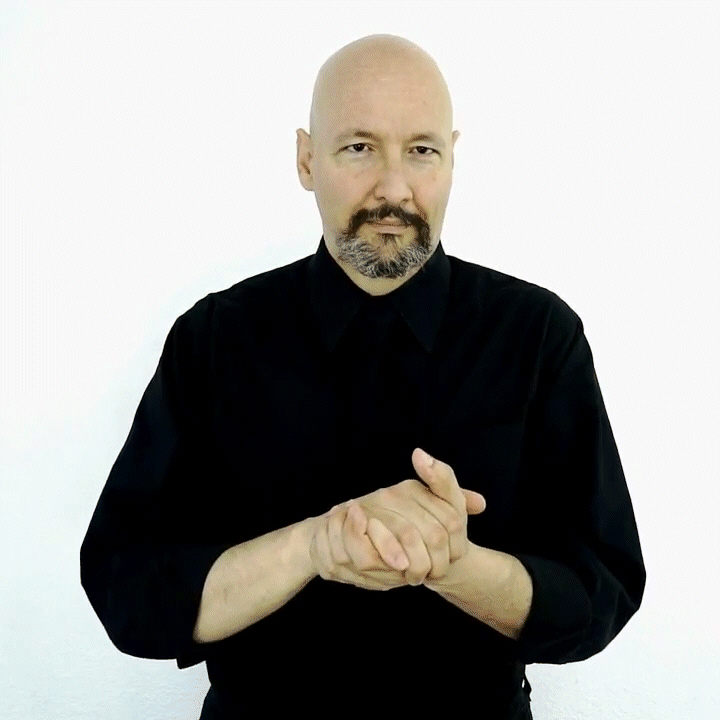
husband
c handshape to forehead marriage
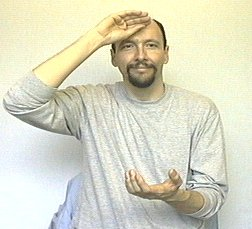
wife
c handshape to chin marriage
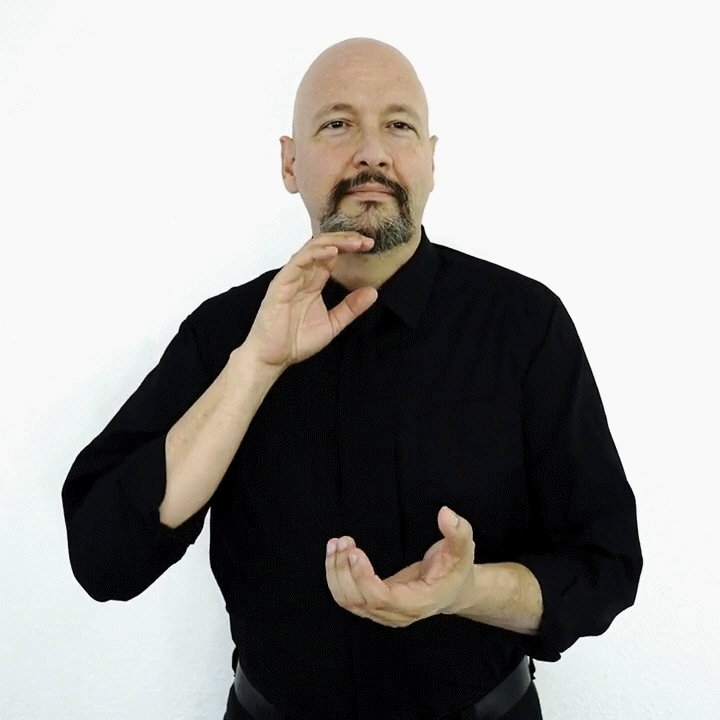
mom
touching the tip of the thumb of your dominant "open"-hand (also called a "5"-hand) to your chin. You may see it tapped twice; you may see the fingers wiggle; but the most basic form is to just touch the thumb of a five hand to the chin.
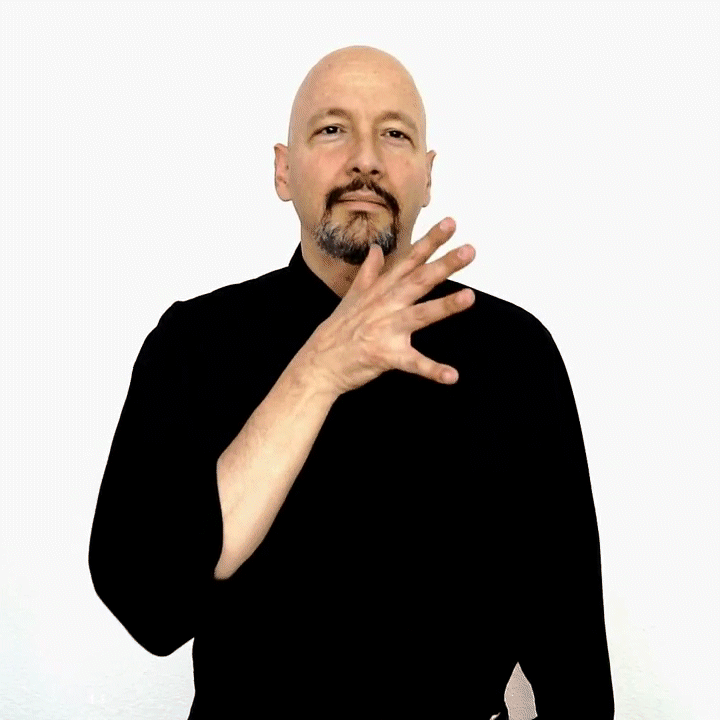
parents
mom dad
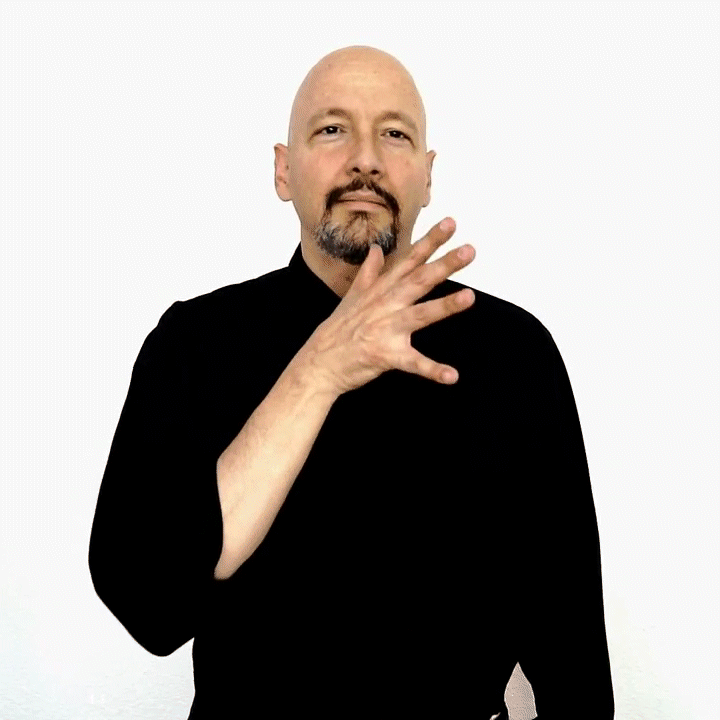
single, alone, something, someone, only
This sign is made by holding the right arm in front of you, palm up. Your right index finger makes circular motions about the size of a quarter. The movement is in your shoulder and elbow, not in your wrist.
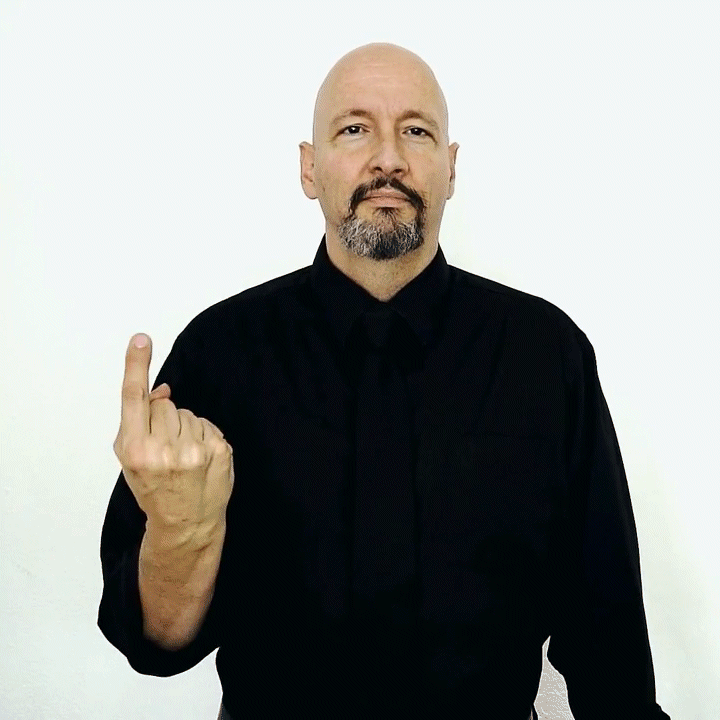
sister
starts with somewhat of an "L" handshape. The handshape is a cross between a "G" and an "L.") The right hand changes to a normal "G" handshape as it moves downward and makes contact with the non-dominant hand which is already in an "index finger / G handshape." The dominant hand is the one that moves. The non-dominant hand is stationary during this sign.
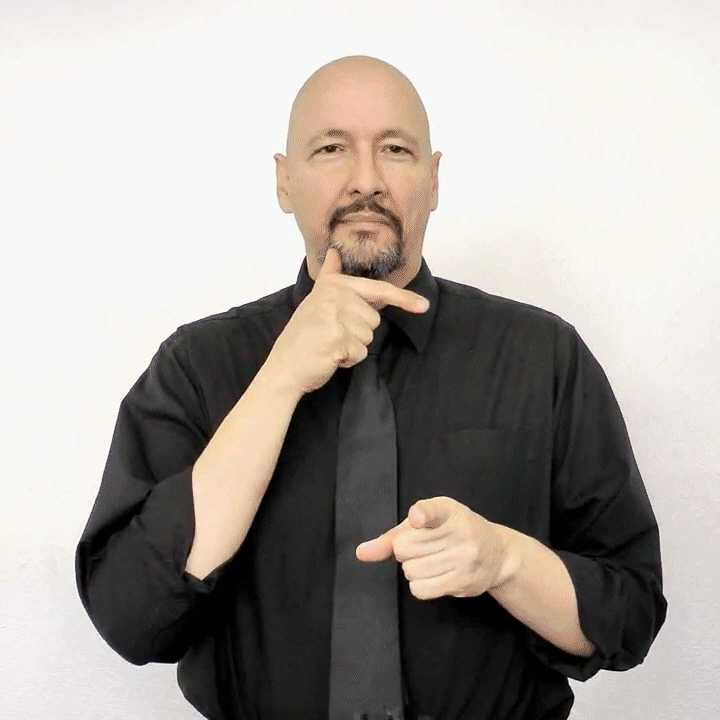
fingerspell
five finger handshape with fingers moving up and down almost like typing
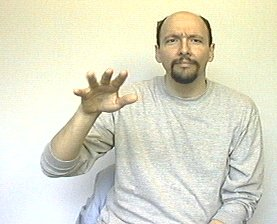
work
shaping both hands into "fist shapes" (the letter "s.") With your palms facing downward, use your dominant fist to tap the wrist or the side of your non-dominant fist a few times.
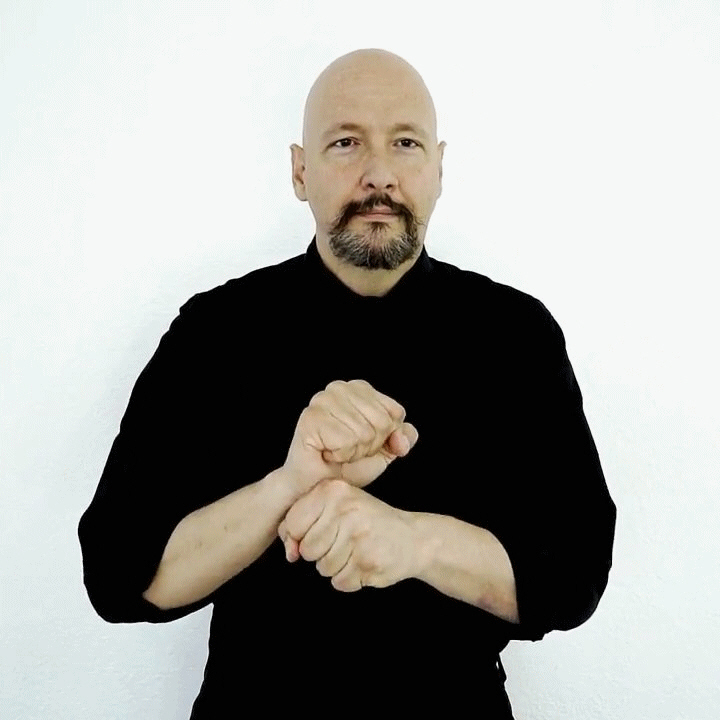
job
I and a backwards B handshape
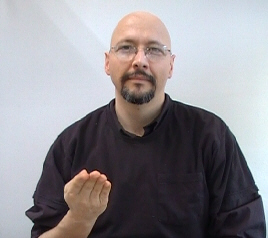
we
tap on both shoulders
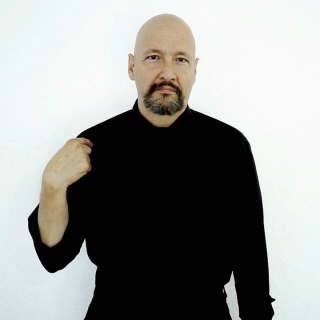
right (correct)
The dominant index-finger hand comes down onto the non-dominant index finger hand.
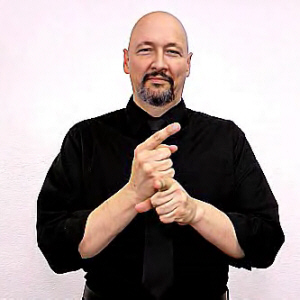
single (something/someone/alone/only)
sign is made by holding the right arm in front of you, palm up.
Your right index finger makes circular motions about the size of a quarter. The movement is in your shoulder and elbow, not in your wrist.

not yet
The dominant hand moves backward a couple times swinging at the wrist. places the tongue over the bottom teeth, and uses a slight headshake.
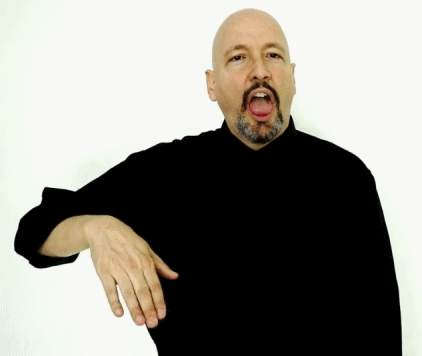
never
"karate chop." It has a movement path that follows somewhat of a question mark shape in the air.
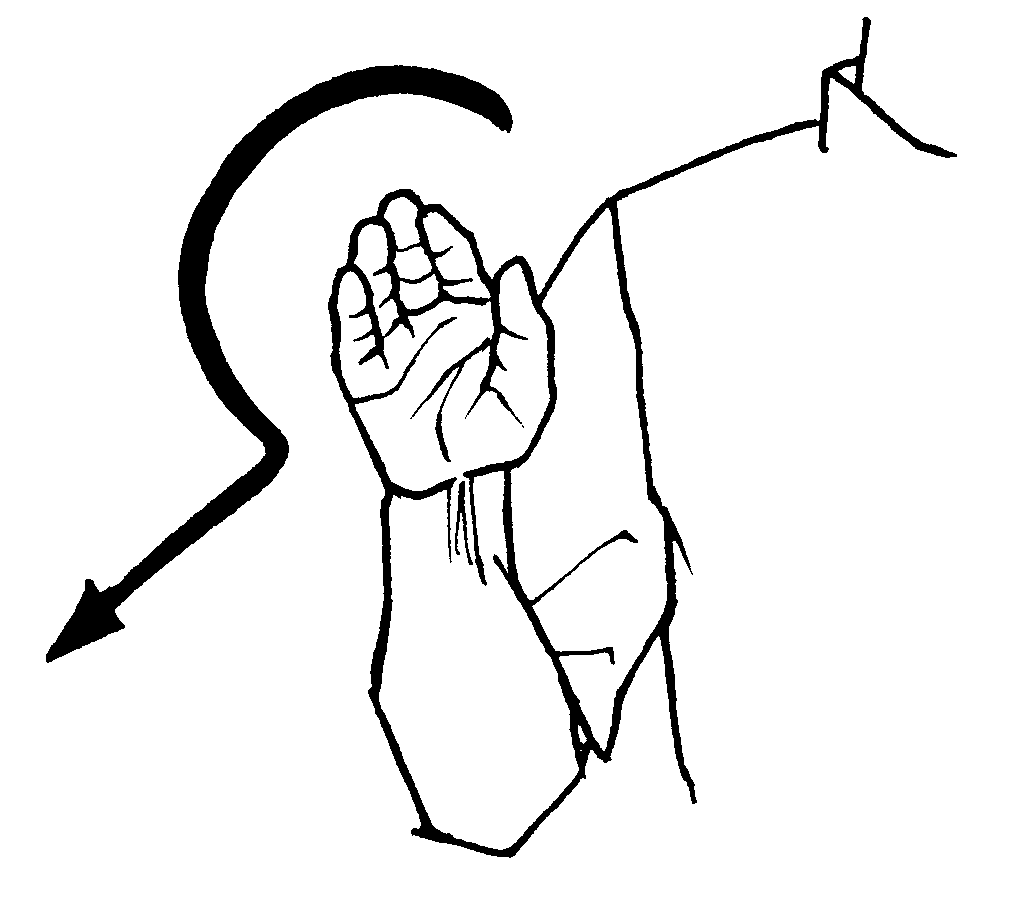
remarried
again married

finish (over, done, already)
placing both of your open hands in front of you. Each hand should face you, with your fingers pointing upward. Twist both hands quickly a couple times ending with the palms pointing (somewhat) forward. You can also do this sign with just a single twist
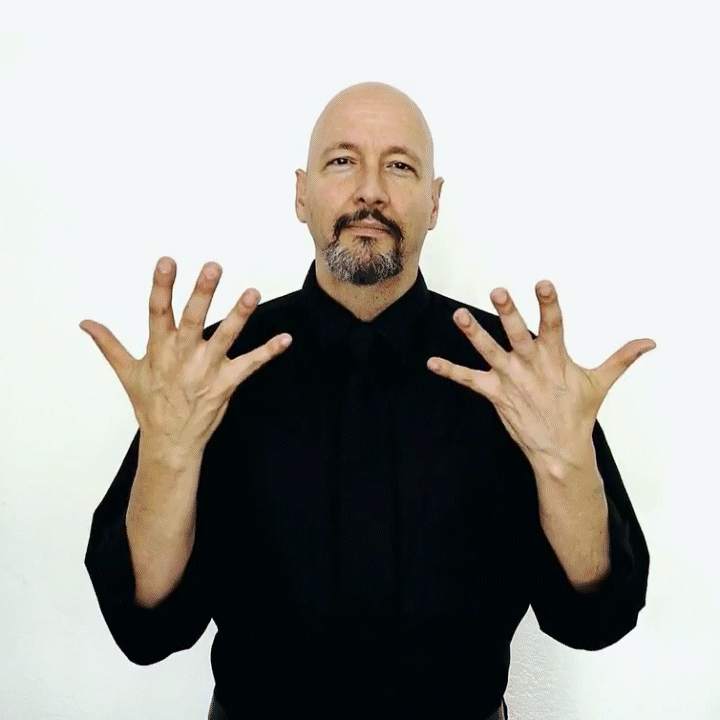
city
touch your hands together as if showing a roof top. Separate them slightly as you move the hands to the side and touch the hands together again.
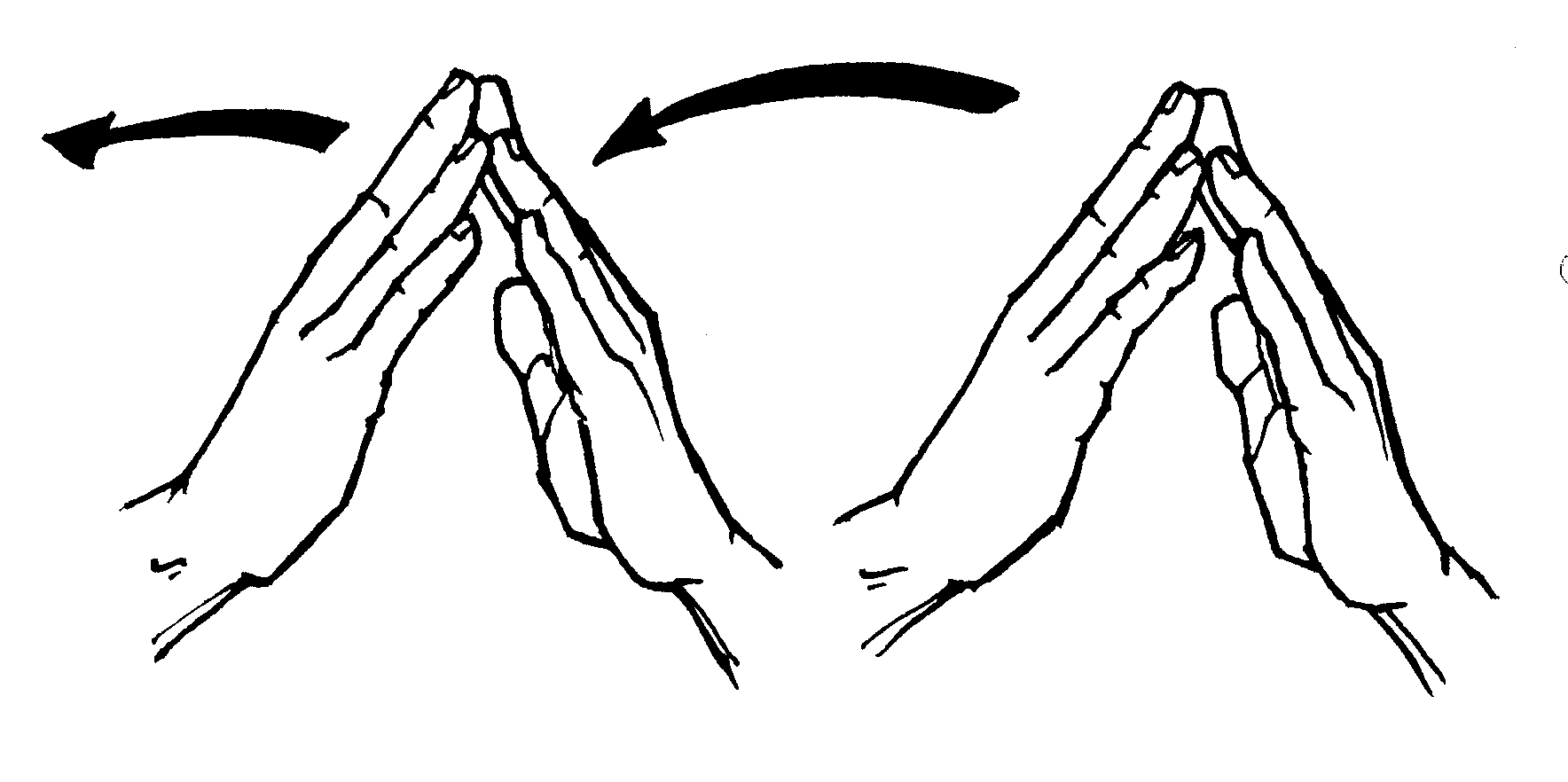
all (whole)
one hand moves in a circle back behind the other hand. Location: Neutral signing area in front of the body Orientation: Palm orientation changes throughout the sign. In general, the right hand is palm out at the start of the sign and ends up palm back. The left hand is for the most part, palm back. Movement: The right hand does all the movement in this sign. The left hand stays fairly stationary.
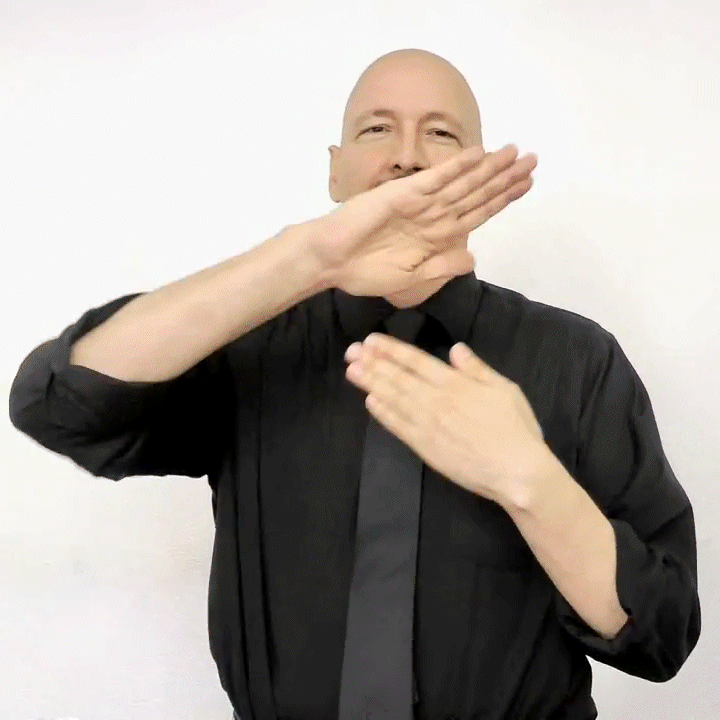
#all
a handshape then swings into a backwards L
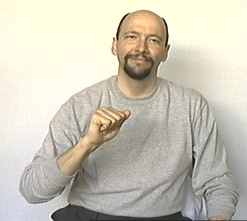
wow
shakes a loose "5" hand
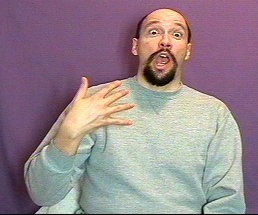
bathroom
forming the dominant hand into the letter "t." The palm side is facing away from you. Shake your hand side to side a couple times. Some people use a twisting movement instead of the side to side shake. Either is fine.
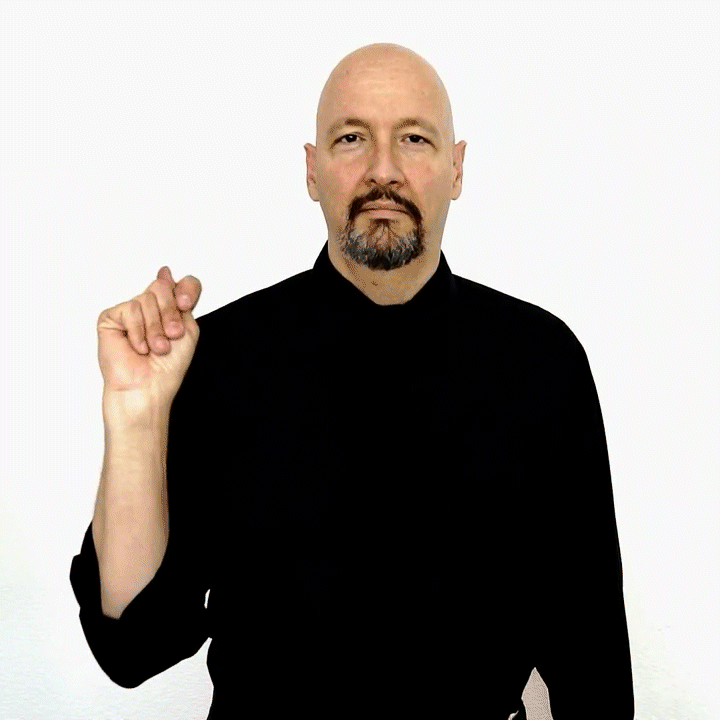
think
Location: forehead, off to the right a bit
Orientation: palm back
Movement: The sign starts an inch or two away from the head and then touches the index finger to the forehead.
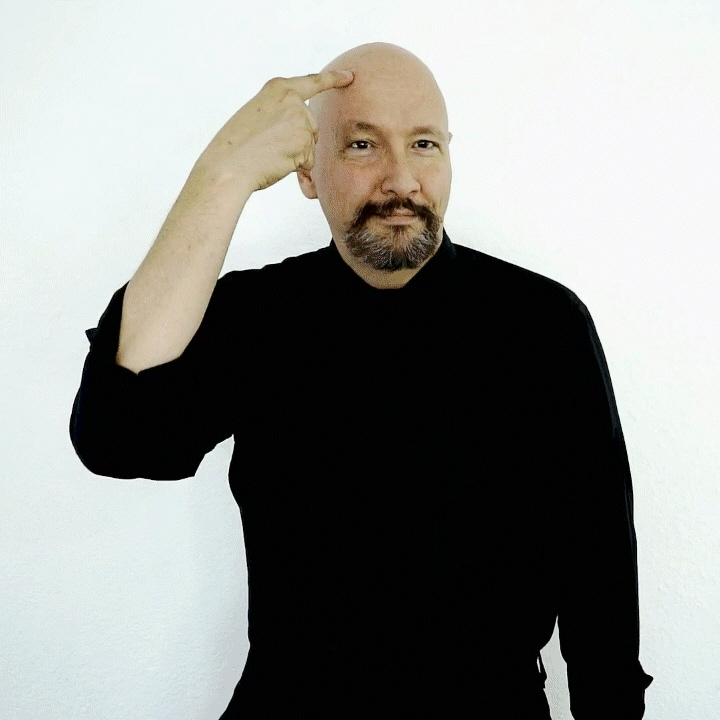
think about (consider)
Location: forehead, off to the right a bit
Orientation: palm back
Movement: The sign starts an inch or two away from the head and Move the tip of the index finger in a small circle in front of the forehead.
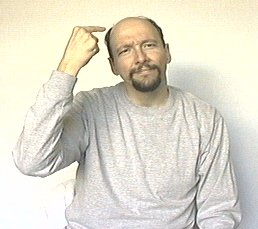
school
Handshape: loose "flat" hands. (Or even "5" hands, but the fingers are not widely splayed.)
Location: In the neutral signing space in front of the body
Orientation: Dominant hand faces down. Non-dominant hand faces up.
Movement: "Clap" the hands together twice.
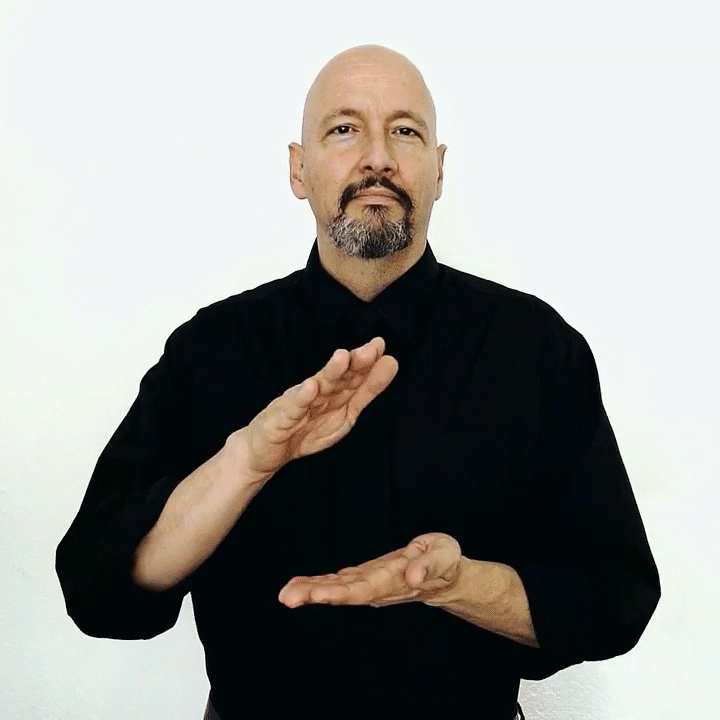
know
touches the side of your forehead with the tips of the fingers of your hand in a flat shape.
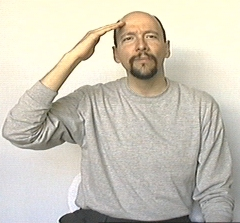
from
starts with the dominant hand in a "1" handshape (as an index finger), and then changes into an "x." The base hand: Starts and STAYS as an index finger. Pull the dominant hand back away from the non-dominant hand as if pulling back a string on a bow.
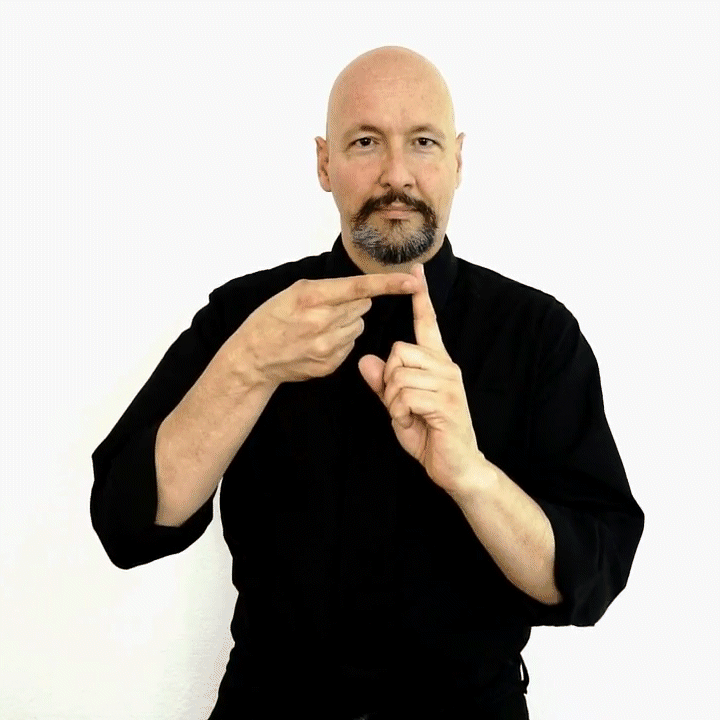
from you
where you from
family
"F" hands and use the hands to trace the shape of a circle.
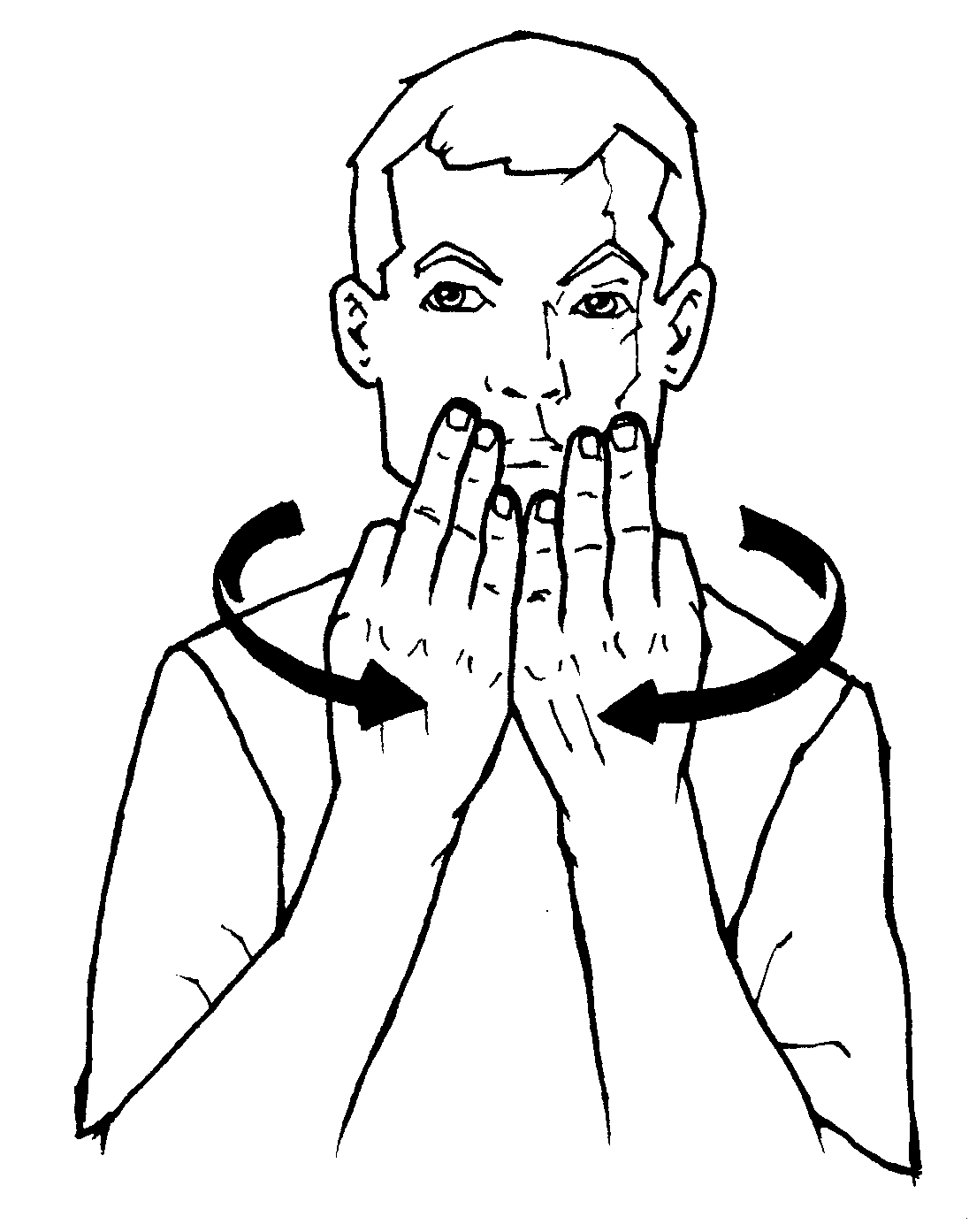
family deaf
is anyone in your family deaf
class
"C" hands and use the hands to trace the shape of a circle.
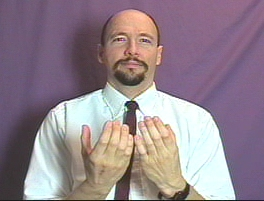
group
"G" hands and use the hands to trace the shape of a circle.
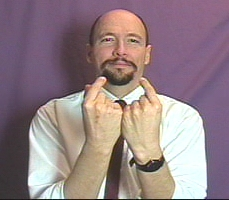
team
"T" hands and use the hands to trace the shape of a circle.
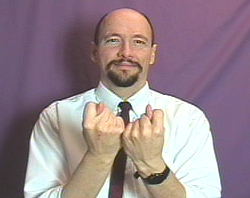
forget
hold your hand in front of your forehead (or go ahead and put your fingers on your forehead) and then pull your hand sideways across the front of your head as you change the handshape from a loose flat hand into an "A" handshape or a "loose" "A" handshape (with the thumb sticking out).
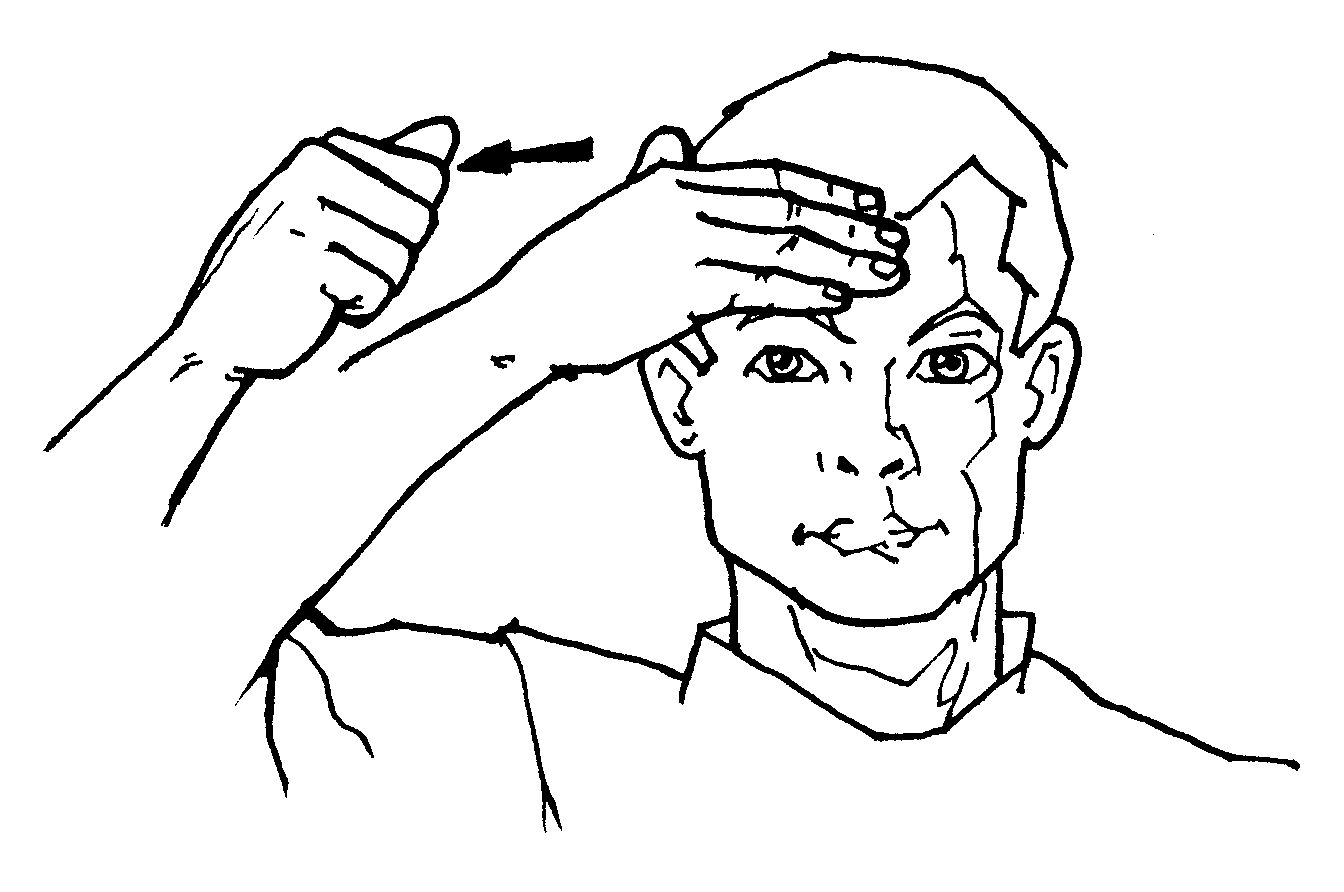
to go
has a single, quick movement:
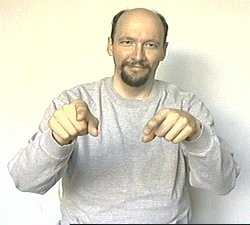
go (attend)
sign twice
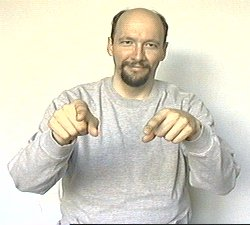
need (need to, must, should, ought- to, have to)
Handshape: "x"
Location: In front of you, off to the right side a bit.
Orientation: starts palm forward, ends palm down
Movement: "x" hand bends downward from the wrist
Non-Manual Marker (Facial expressions and or body language): Use a stronger facial expression to indicate a greater degree of imperative.The faster, "harsher," and more exaggerated you do this sign
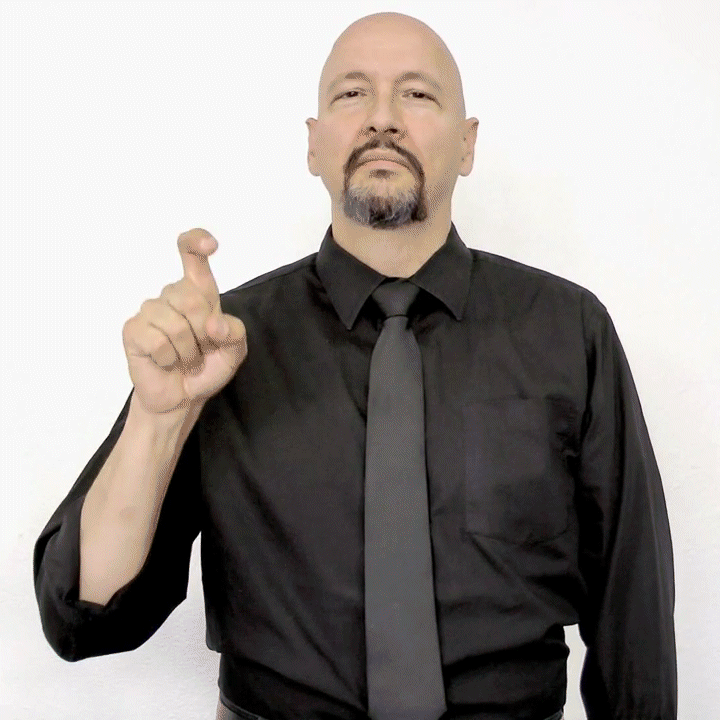
late
generally done in one quick motion, but a double motion is also quite common.
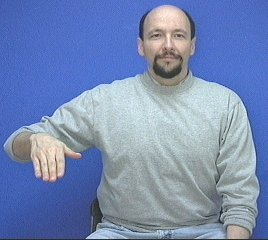
to ask
starts as an index finger and changes into an "X" hand shape as it moves toward the person
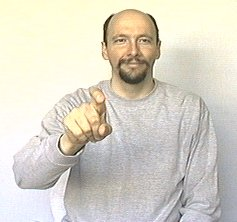
to request
little smaller and use a double motion
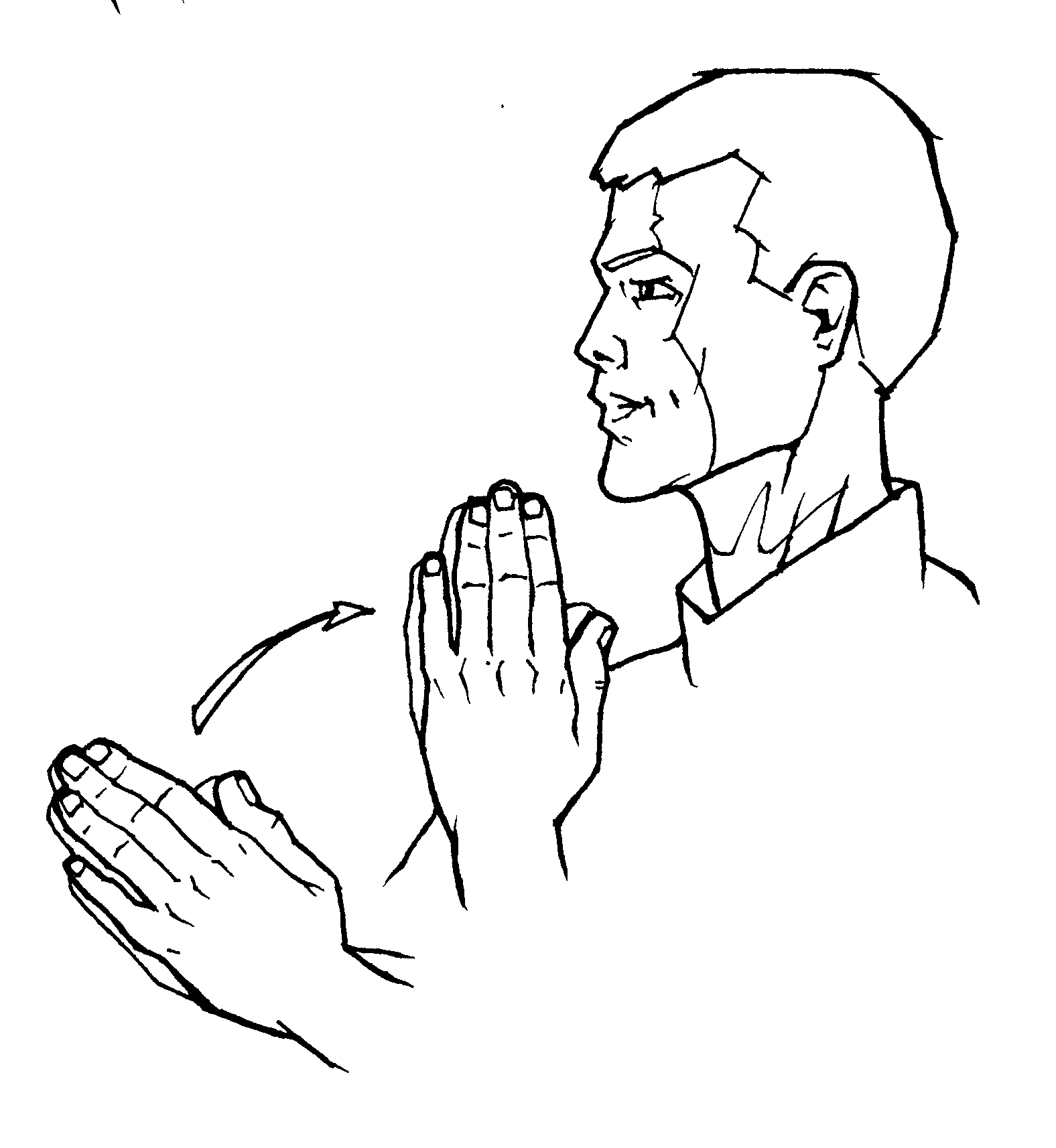
big
"L" hand index fingers are bent
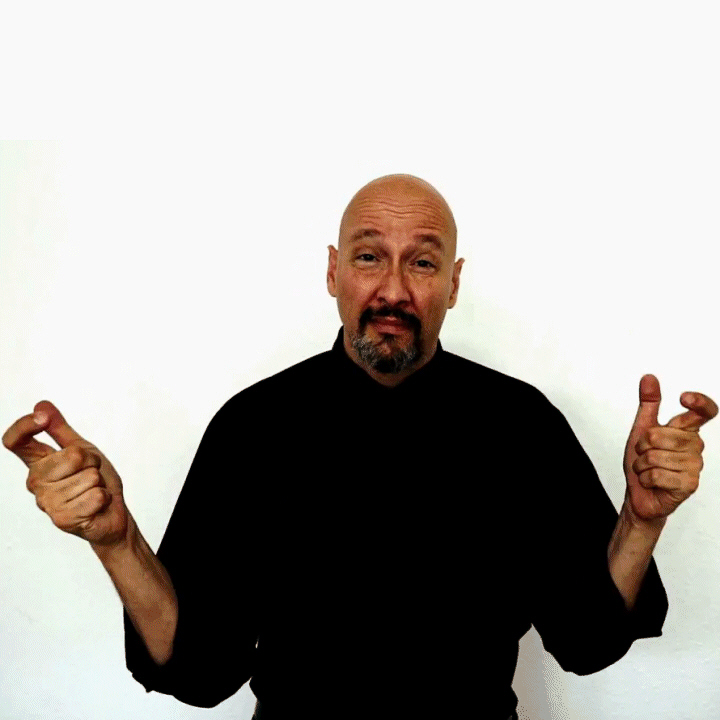
better
side ways hand shape moves into a ten handshape then move up
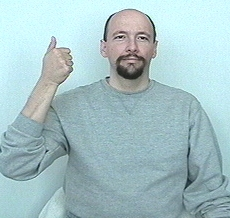
best
side ways hand shape moves into a ten handshape then move up. It actually dips down a bit for emphasis prior to moving "way up." The more you exaggerate this sign, the more your are emphasizing
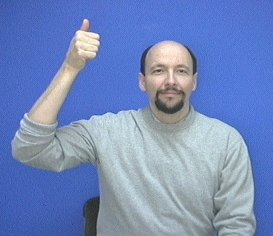
come here
single quick movement. point hand shape move back to point at the ground
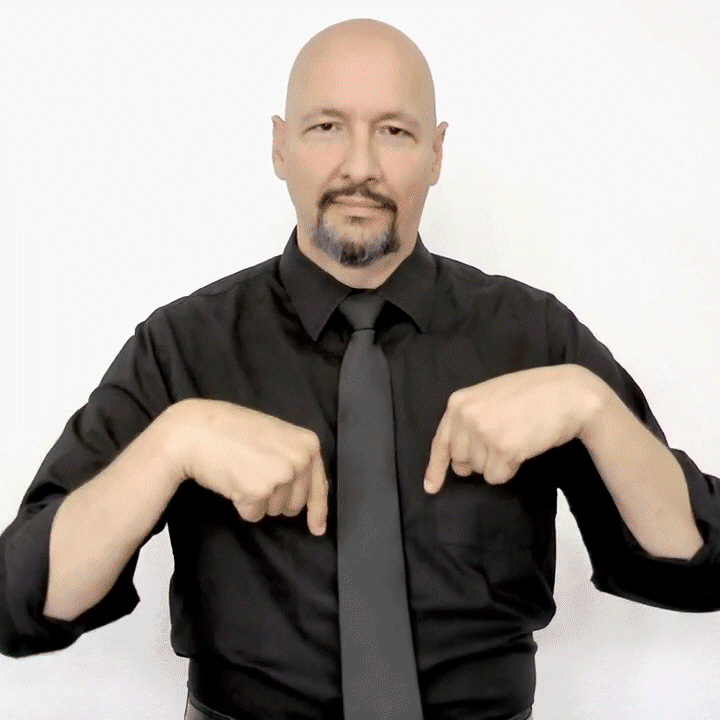
cool (swell)
Stick the tip of your thumb on your chest and wiggle the fingers.
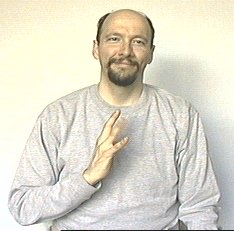
favorite (favor, prefer, rather)
five handshape. middle finger goes in and tap middle finger to chin
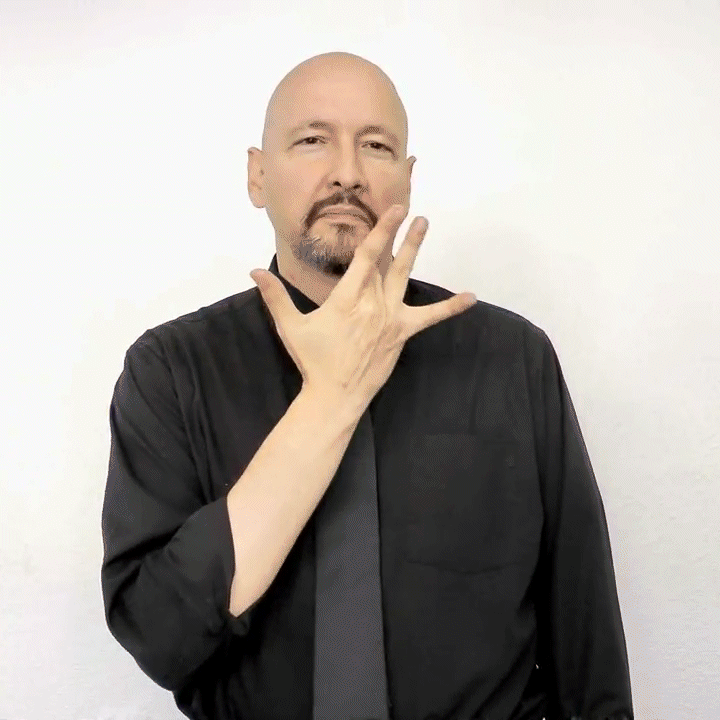
fine (good)
touch your thumb to your chest. Use a "five" handshape.
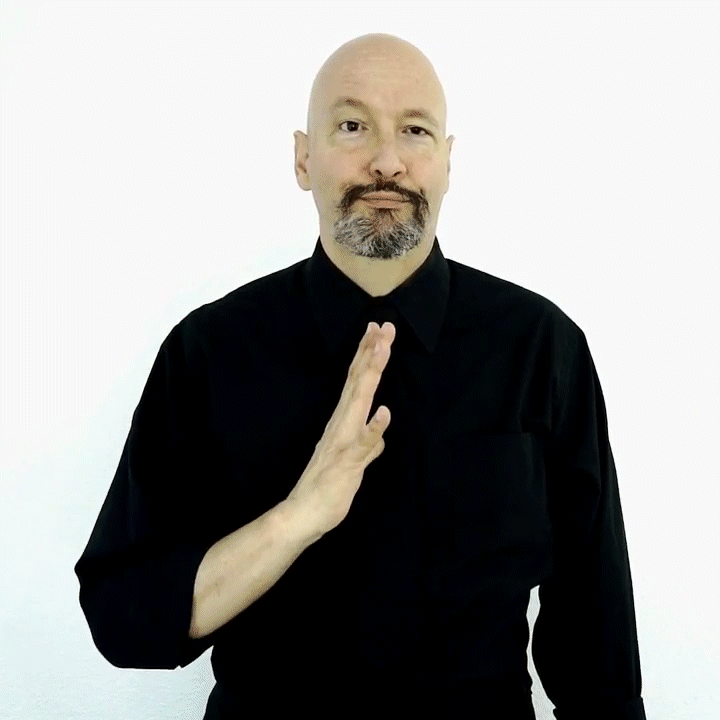
here
Handshape: Both hands are in a relaxed flat hand shape.. By "relaxed" I mean the fingers can be together, or they can be loosely separated. The hands are not "rigidly" flat, but have a very slight curve. The thumbs are open a little bit, but certainly not "extended."
Location: Out in front of you, about belly height.
Orientation: palms facing up
Movement: Each hand moves in a small circle. They don't go up and down. They both move forward, then out to the side, then back toward the body, then in towards each other.
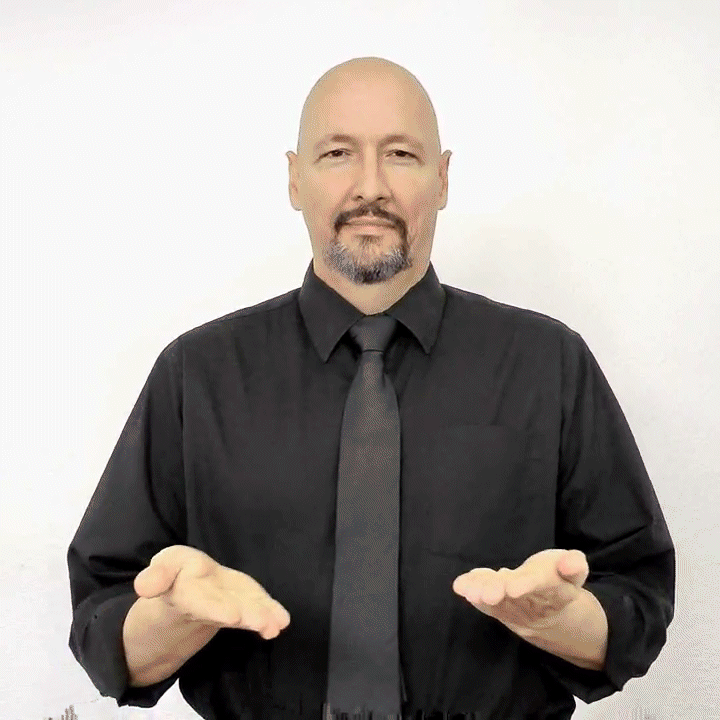
this
point down
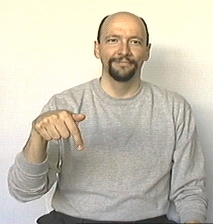
house
"flat hands" to shape the roof and walls. The hand shape can be either "B" handshapes or just "flat" hands.
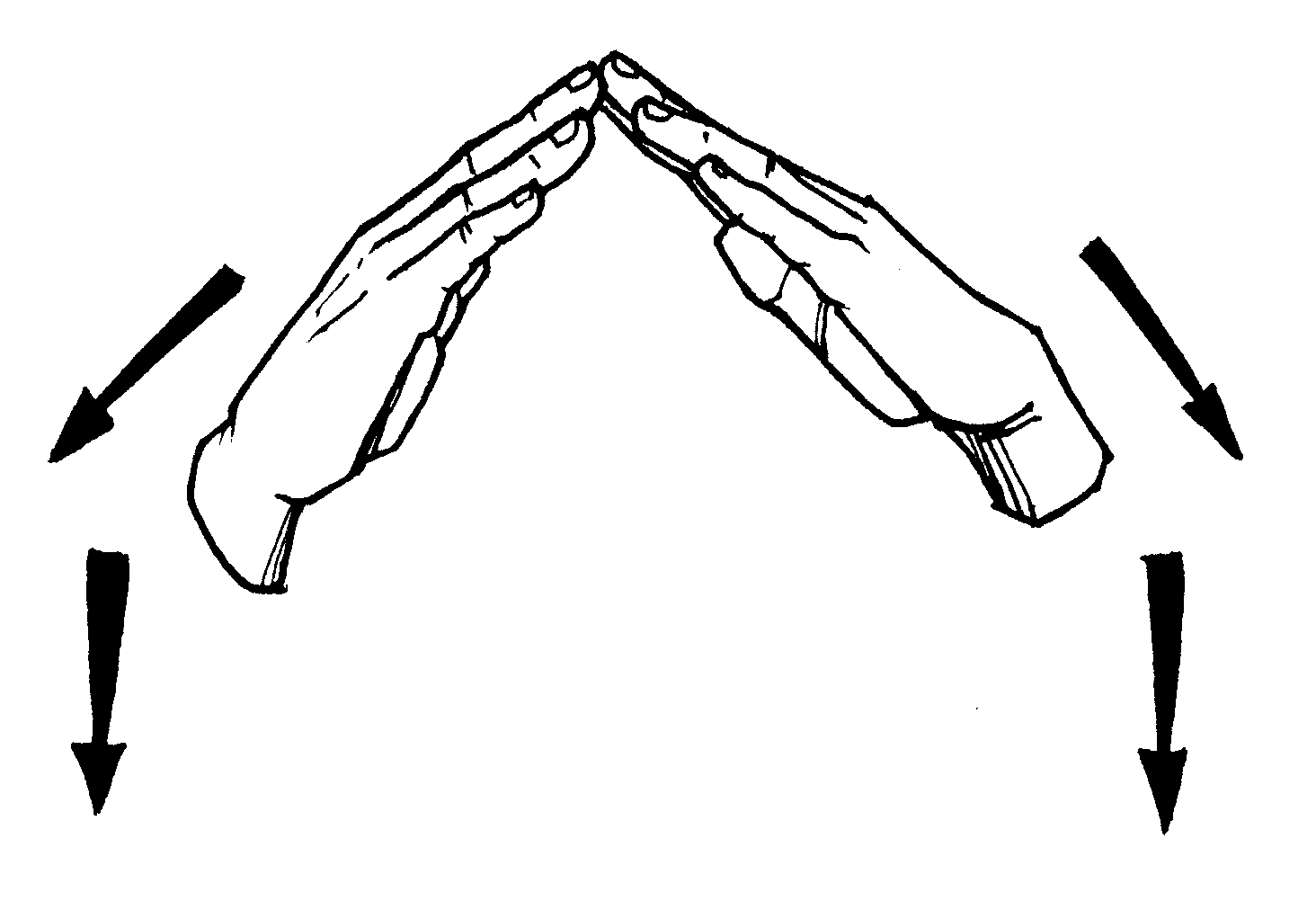
home
bringing your fingers and thumb together and touching your cheek near the side of your mouth. Then move your hand an inch or two toward your ear and touch your cheek again.
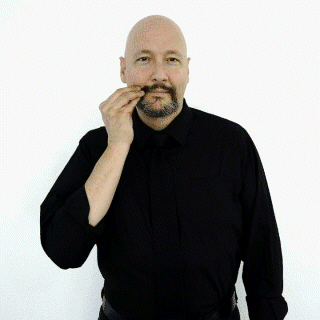
more
uses flattened "O" hands. Bring both "O" hands together.
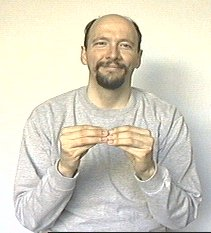
so-so (sort of)
Handshape: "5" hand
Location: Normal signing area in front of the body
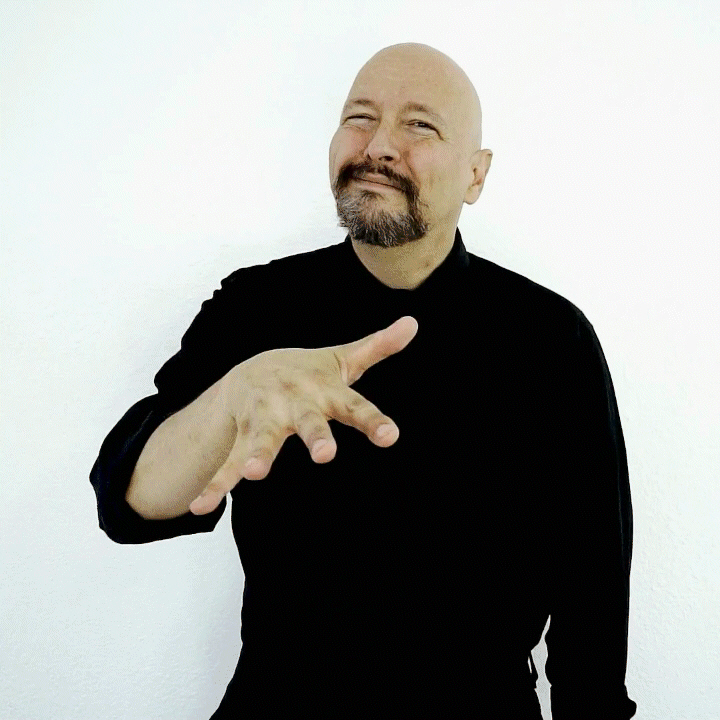
small
hold your hands in front of you, palms facing, and then bring them together using a relatively quick movement.
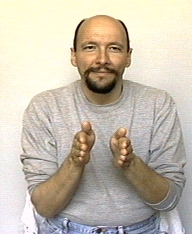
grow up (raised)
shows the height of a person as they grow up. Put your hand out in front of you, palm down. Lift the hand upward in a smooth steady motion.
